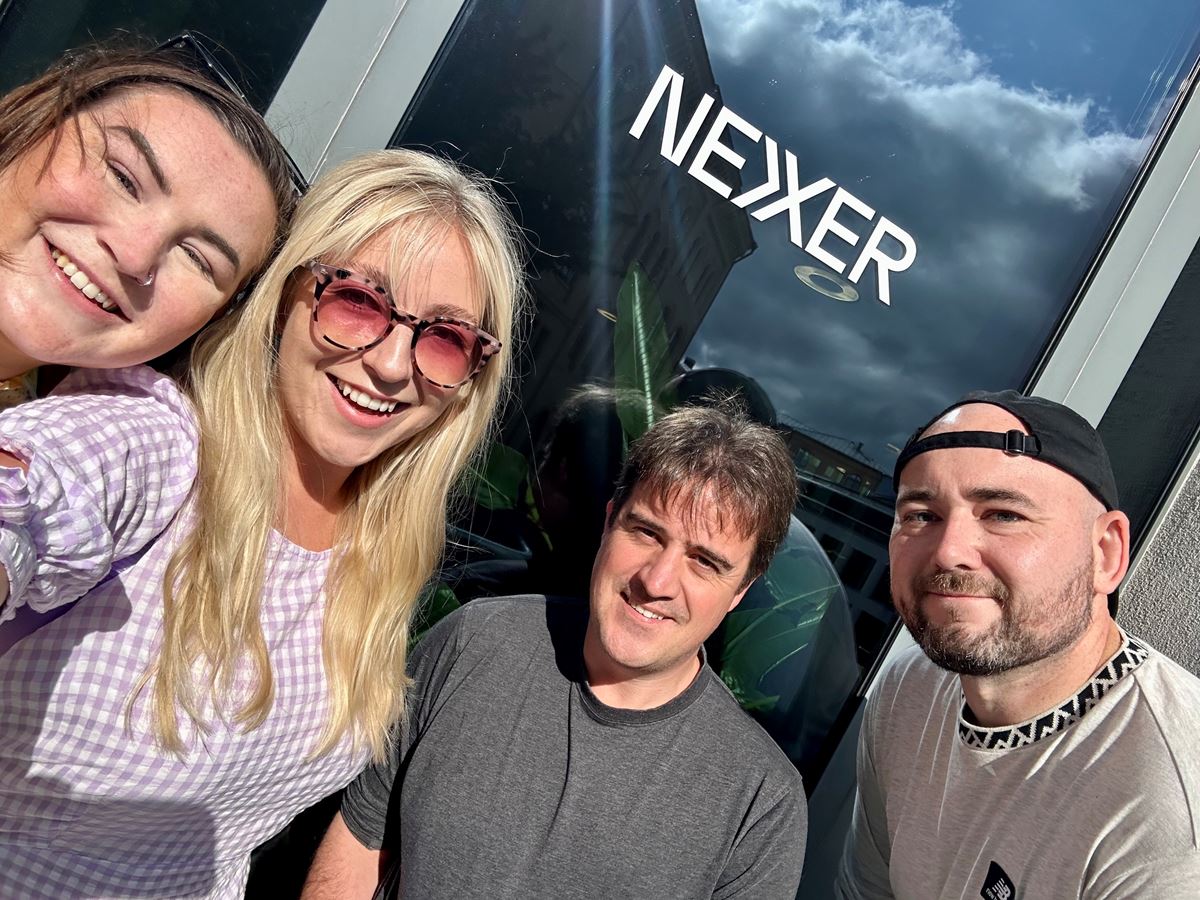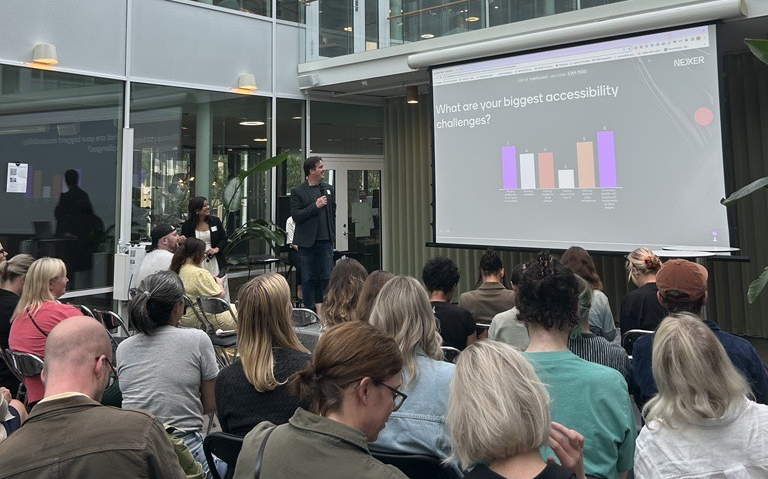Reflections on our Swedish Accessibility Roadshow
4 minute read
Reflections on a week spent travelling Sweden, where we collaborated with special guests and Nexer Group colleagues to deliver a series of events focussed on accessibility and inclusion.
Last week we ran 4 events, in 3 Swedish cities, as part of an accessibility awareness tour. Our journey has taken us through Malmo, Lund, and Stockholm, where Molly, Chris, and I collaborated with special guests and Nexer Group colleagues, to deliver sessions around accessibility, inclusive design and equality.

By now, many organisations are aware of the forthcoming European Accessibility Act (EAA), legislation which obligates them to ensure any customer-facing product or service being sold to consumers in the EU is accessible. There are many questions about what this means in practice. For example, ‘Does this only apply to new products and services?’ (The answer is no, existing products and services are included too), and ‘What are the penalties for non-compliance?’ (Organisations can face financial penalties, but the amount is still to be confirmed).
I saw a brilliant analogy on Twitter from Amy Hupe the other day; that fixing accessibility issues at the end of a project is like mopping a floor but not actually fixing the leak. Our events focused less on the legislative changes, although they’re important. Instead, we advocate for working to make inclusion truly embedded, rather than simply ticking boxes to ensure minimum compliance with the Act. Legislation does, however, bring awareness. And this presents an excellent opportunity to go beyond compliance and embrace accessibility and inclusive practices as a chance to transform organisational culture.
These events have been a fantastic opportunity to collaborate with colleagues across the wider Nexer Group, understand differences between markets in the UK and Sweden, and engage with attendees from a variety of backgrounds and organisations. Amid our travels, we’ve also had some revealing (slightly ironic, given the subject of our events) interactions with inaccessible services, both on and offline, illustrating just how far inclusion still has to go in many cases.
Making the case
The common thread woven through the events was our commitment to sharing experiences and encouragement for those wishing to champion accessibility within their organisations. It was interesting to see that most people classed themselves as novices in the context of their accessibility journey. When we asked ‘What are your biggest accessibility challenges?’, we found that raising awareness and finding users with impairments to be involved in projects were common responses.
In our daily work, we encounter businesses at various stages of their inclusivity efforts, and for many, taking the first steps can be the most daunting. To offer reassurance, no one gets everything right overnight. It's more about making a long-term commitment to your users and being transparent about your efforts.

"Don't just do it for money, do it as a moral imperative"
Our speakers focused on both the business and moral cases for taking an inclusive approach. Shaun Conner, a passionate accessibility champion with experience creating accessible products in both the public and private sector, pointed out that it’s 200% more expensive for organisations to fix accessibility issues than to embed an inclusive culture.
Molly also made the same point around eCommerce and retail, highlighted in WebAIM’s Million Report as among the least accessible sectors when it comes to encountering common accessibility issues. Issues like empty form labels on payment journeys act as a barrier to access for those using a screen reader. By making services inaccessible and excluding a whole group of users (around 80 million people in the EU are living with disabilities) businesses are missing out on around 20% of the market. In the UK, this spending power is known as the Purple Pound, and it’s estimated that approximately £2bn a month is lost by businesses through ignoring the needs of disabled people.
It's also important that organisations ensure that they’re taking a joined-up approach to accessibility. Indeed, legislation such as the EAA and best practices such as WCAG (Web Content Accessibility Guidelines) 2.1 offer a great starting point, but they are the floor, not the ceiling. Involving users through research and usability sessions is one of the most efficient and valuable ways to gather meaningful insight to transform products and services. Compliance doesn’t necessarily automatically mean something is accessible and usable. It’s a good place to start, but by no means end.
Travel issues
Our mission is to create a world where users can access products and services that help them live and work better. It’s an ethos that we’re invested in for many reasons, and unfortunately, some of those reasons came to the fore over the course of the week. Molly, in particular, encountered multiple challenging travel scenarios throughout the course of her journey, including a flight cancellation, and then some poor interactions with the accessibility desk at the airport, which resulted in yet another missed flight
It’s an all-too-common demonstration of what happens when inaccessible digital services meet poor training and a lack of awareness among staff. It’s also unsurprising, given the recent findings from the Civil Aviation Authority report on the accessibility of the top 11 airlines in the UK, which found that improvement to accessibility is required across the board. There is a lot of work to do in this sector.
In conclusion
Our Swedish accessibility roadshow has been an incredible journey, and it was a privilege to share it with so many people who are passionate and interested in accessibility, both speakers and attendees.
The forthcoming European Accessibility Act presents a golden opportunity for businesses to not just comply but to thrive by embracing accessibility, and we look forward to sharing more of our expertise and insights on how organisations can embrace accessibility as a core principle – and deliver the best user experience for all.
We’re looking forward to running another event in Gothenburg later this autumn, and in the meantime, I’ll continue to be based in Sweden and working with Nordic organisations to embed accessibility and inclusive practice into their organisations.
If you fancy a chat about accessibility and how we can your organisation, contact me at: amy.czuba@nexergroup.com

